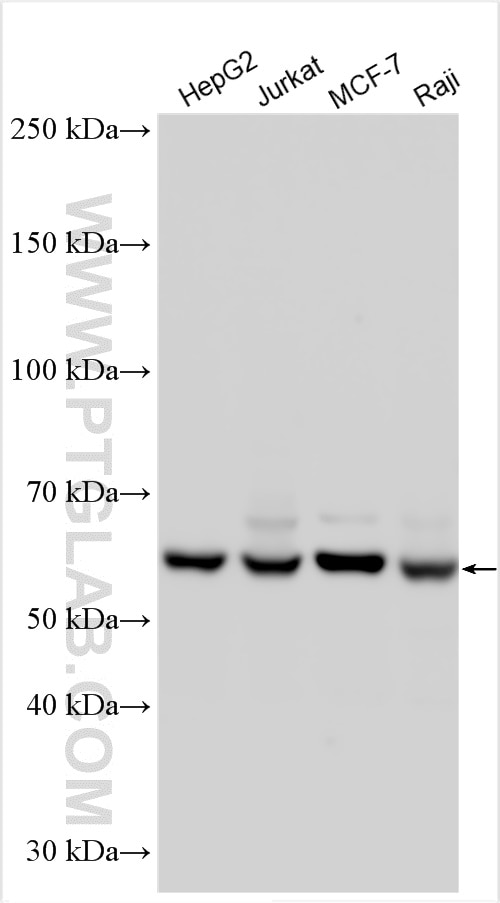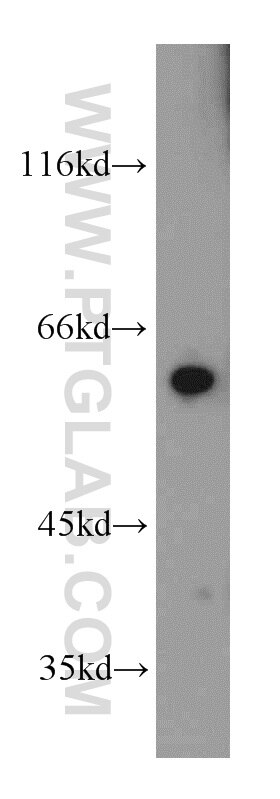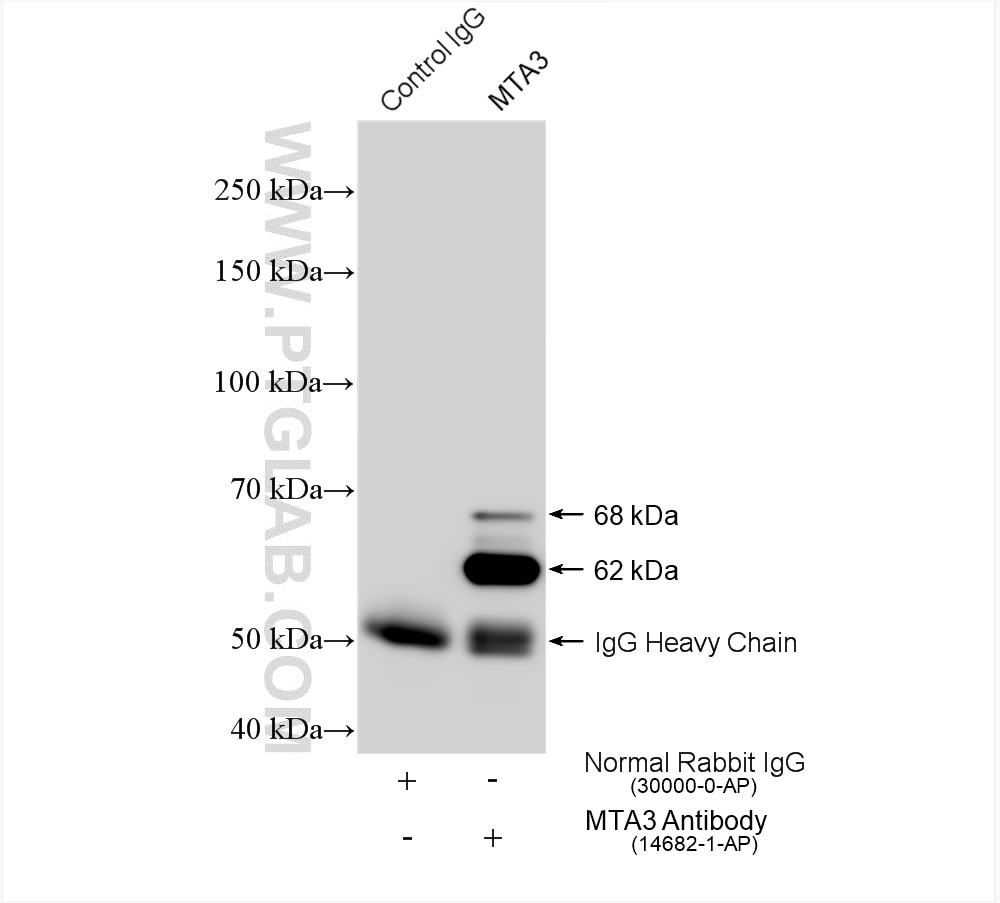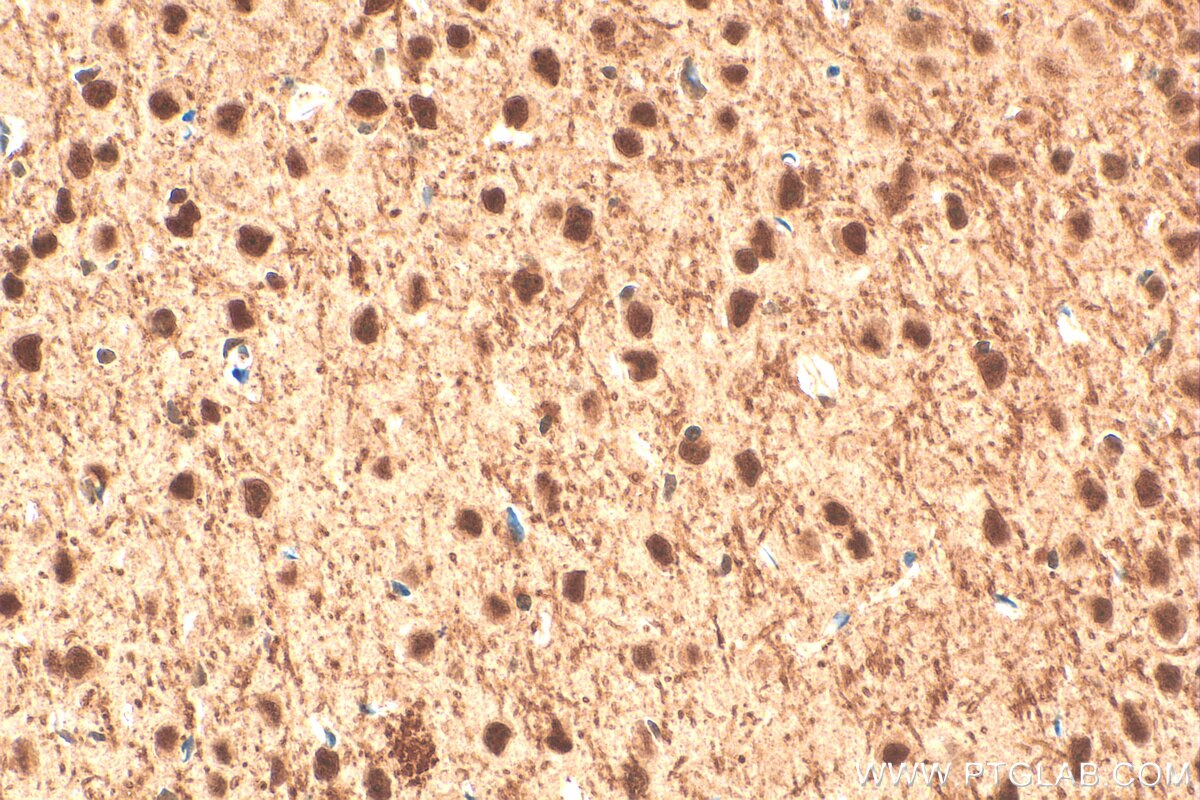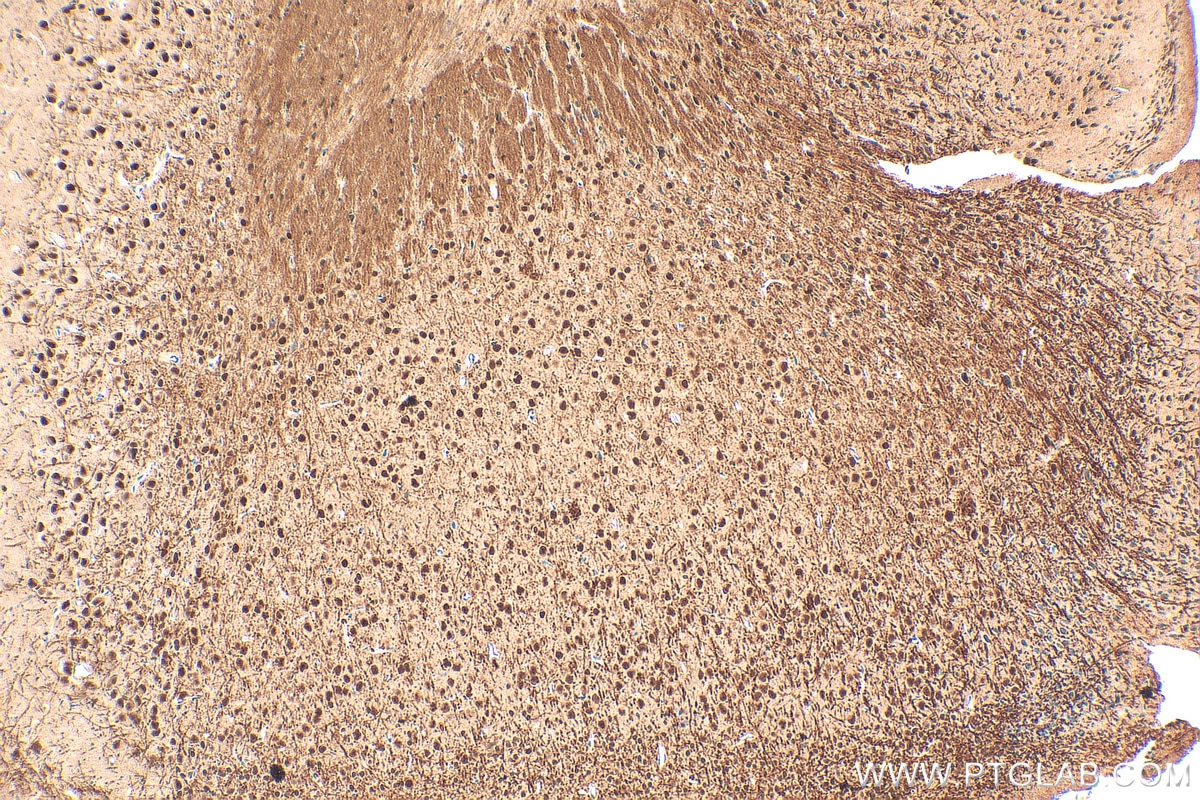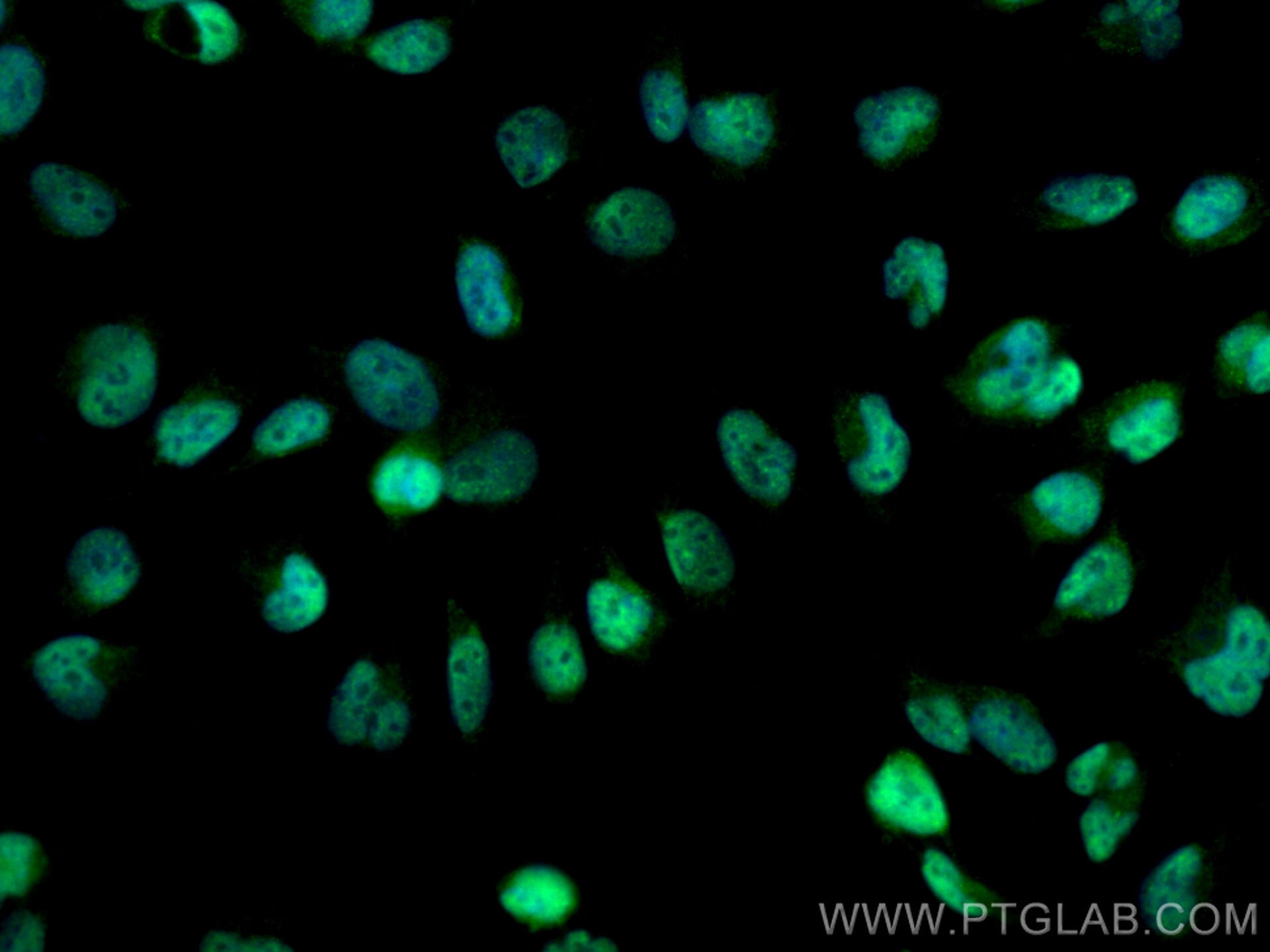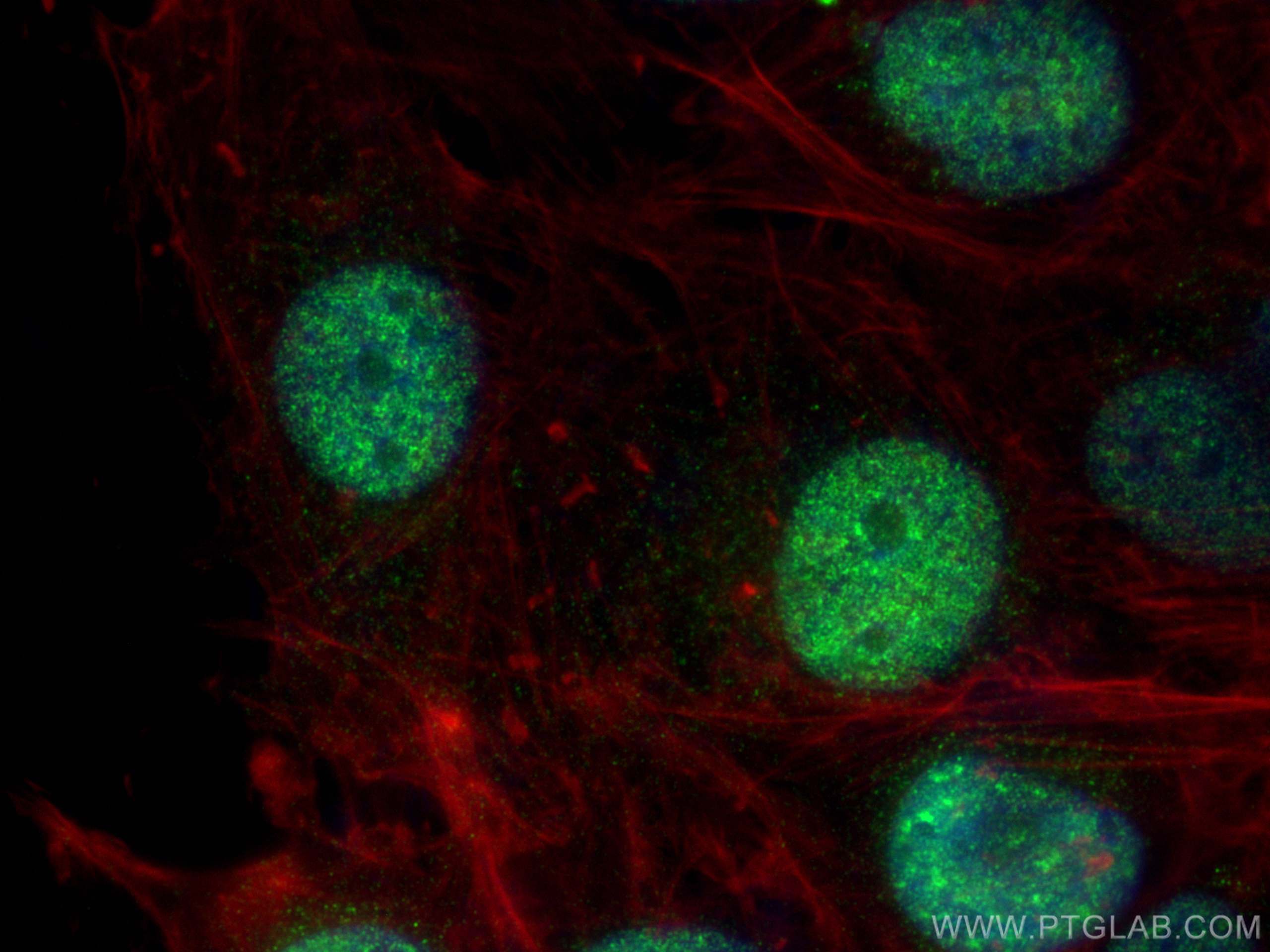Validation Data Gallery
Tested Applications
| Positive WB detected in | HepG2 cells, mouse thymus tissue, Jurkat cells, MCF-7 cells, Raji cells |
| Positive IP detected in | Raji cells |
| Positive IHC detected in | mouse brain tissue Note: suggested antigen retrieval with TE buffer pH 9.0; (*) Alternatively, antigen retrieval may be performed with citrate buffer pH 6.0 |
| Positive IF/ICC detected in | U-251 cells |
Recommended dilution
| Application | Dilution |
|---|---|
| Western Blot (WB) | WB : 1:2000-1:10000 |
| Immunoprecipitation (IP) | IP : 0.5-4.0 ug for 1.0-3.0 mg of total protein lysate |
| Immunohistochemistry (IHC) | IHC : 1:250-1:1000 |
| Immunofluorescence (IF)/ICC | IF/ICC : 1:200-1:800 |
| It is recommended that this reagent should be titrated in each testing system to obtain optimal results. | |
| Sample-dependent, Check data in validation data gallery. | |
Published Applications
| KD/KO | See 2 publications below |
| WB | See 8 publications below |
| IHC | See 10 publications below |
| IP | See 1 publications below |
Product Information
14682-1-AP targets MTA3 in WB, IHC, IF/ICC, IP, ELISA applications and shows reactivity with human, mouse, rat samples.
| Tested Reactivity | human, mouse, rat |
| Cited Reactivity | human, mouse |
| Host / Isotype | Rabbit / IgG |
| Class | Polyclonal |
| Type | Antibody |
| Immunogen |
CatNo: Ag6400 Product name: Recombinant human MTA3 protein Source: e coli.-derived, PKG Tag: GST Domain: 1-343 aa of BC053631 Sequence: MAANMYRVGDYVYFENSSSNPYLIRRIEELNKTASGNVEAKVVCFYRRRDISNTLIMLADKHAKEIEEESETTVEADLTDKQKHQLKHRELFLSRQYESLPATHIRGKCSVALLNETESVLSYLDKEDTFFYSLVYDPSLKTLLADKGEIRVGPRYQADIPEMLLEGESDEREQSKLEVKVWDPNSPLTDRQIDQFLVVARAVGTFARALDCSSSVRQPSLHMSAAAASRDITLFHAMDTLYRHSYDLSSAISVLVPLGGPVLCRDEMEEWSASEASLFEEALEKYGKDFNDIRQDFLPWKSLTSIIEYYYMWKTTDRYVQQKRLKAAEAESKLKQVYIPTYS 相同性解析による交差性が予測される生物種 |
| Full Name | metastasis associated 1 family, member 3 |
| Calculated molecular weight | 68 kDa |
| Observed molecular weight | 62 kDa, 68 kDa |
| GenBank accession number | BC053631 |
| Gene Symbol | MTA3 |
| Gene ID (NCBI) | 57504 |
| RRID | AB_2298003 |
| Conjugate | Unconjugated |
| Form | |
| Form | Liquid |
| Purification Method | Antigen affinity purification |
| UNIPROT ID | Q9BTC8 |
| Storage Buffer | PBS with 0.02% sodium azide and 50% glycerol{{ptg:BufferTemp}}7.3 |
| Storage Conditions | Store at -20°C. Stable for one year after shipment. Aliquoting is unnecessary for -20oC storage. |
Background Information
The metastasis-associated (MTA) family contains three members, MTA1, MTA2 and MTA3 (PMID:12167865).Metastasis-associated protein 3 (MTA3) is a cell-type specific component of the Mi-2-NURD transcriptional co-repressor complex. It has a role in maintenance of the normal epithelial architecture through the repression of SNAI1 transcription in a histone deacetylase-dependent manner, and thus the regulation of E-cadherin levels.
Protocols
| Product Specific Protocols | |
|---|---|
| IF protocol for MTA3 antibody 14682-1-AP | Download protocol |
| IHC protocol for MTA3 antibody 14682-1-AP | Download protocol |
| IP protocol for MTA3 antibody 14682-1-AP | Download protocol |
| WB protocol for MTA3 antibody 14682-1-AP | Download protocol |
| Standard Protocols | |
|---|---|
| Click here to view our Standard Protocols |
Publications
| Species | Application | Title |
|---|---|---|
Cell Stem Cell The polycomb group protein L3mbtl2 assembles an atypical PRC1-family complex that is essential in pluripotent stem cells and early development. | ||
Mol Cell The Nucleosome Remodeling and Deacetylation Complex Modulates Chromatin Structure at Sites of Active Transcription to Fine-Tune Gene Expression. | ||
Oncotarget Metastasis-associated protein 3 in colorectal cancer determines tumor recurrence and prognosis. | ||
PLoS One Overexpression of MTA3 Correlates with Tumor Progression in Non-Small Cell Lung Cancer.
| ||
J Gastroenterol Hepatol Overexpression of the metastasis-associated gene MTA3 correlates with tumor progression and poor prognosis in hepatocellular carcinoma. | ||
Tumour Biol MTA3 regulates malignant progression of colorectal cancer through Wnt signaling pathway. |

